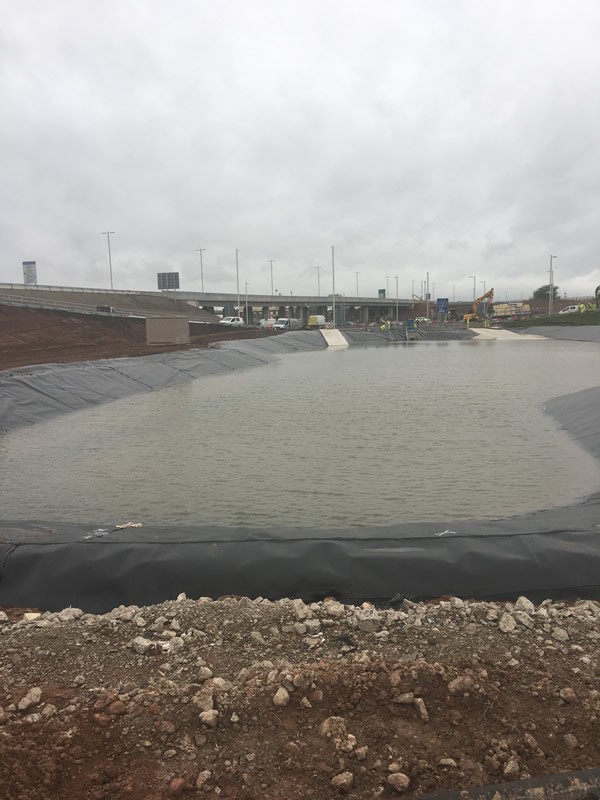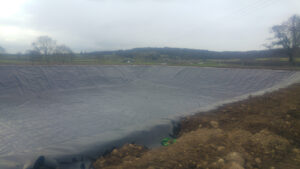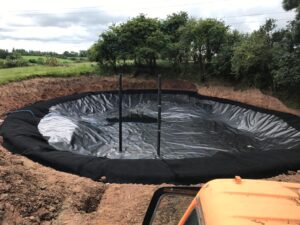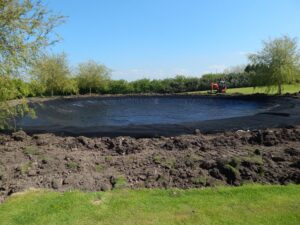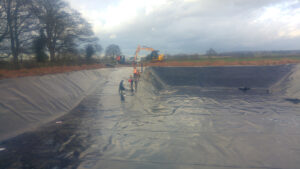High-Density Polyethylene (HDPE) liners stand as versatile solutions in various industries, primarily in containment applications where impermeability is crucial. Textured and smooth HDPE liners, while both serving as effective containment barriers, exhibit distinct characteristics that suit different environments and purposes.
Smooth HDPE liners, recognised for their uniform surface, offer exceptional impermeability, making them ideal for applications requiring a high level of containment. Their smooth surface minimises the risk of punctures and facilitates easy installation. As a result, these liners are commonly used in projects demanding reliable containment of liquids, such as in landfill basal liners, secondary containment systems, and pond liners.
On the other hand, textured HDPE liners feature a surface with raised or embossed patterns. This texture enhances their frictional properties, providing increased stability and improved resistance to slippage, making them suitable for applications requiring enhanced grip and stability. Textured liners find their niche in slope protection, landfills, and applications where increased frictional resistance is vital to prevent slippage or sliding.
The choice between textured and smooth HDPE liners often depends on the specific requirements of the project. Factors such as environmental conditions, site characteristics, and the nature of the contained materials influence the selection of the most suitable liner type.
In landfill applications, for instance, smooth HDPE liners are typically used as basal liners due to their excellent impermeability, effectively preventing leachate from contaminating surrounding soil and groundwater. Textured HDPE liners, on the other hand, find their application in landfill caps or covers where their enhanced frictional properties help maintain stability on slopes and prevent erosion.
Additionally, in containment ponds or reservoirs where stability and resistance to slippage are critical, textured HDPE liners offer an advantage over their smooth counterparts. The textured surface provides a secure grip, reducing the likelihood of shifting or movement, thus ensuring the integrity of the containment structure.
Furthermore, while both types of HDPE liners offer robust resistance to chemicals and UV degradation, textured liners, with their increased surface area, can provide additional protection against potential damage caused by UV exposure, contributing to their longevity in outdoor applications.
Ultimately, the selection between textured and smooth HDPE liners relies on a comprehensive evaluation of the project’s requirements, site conditions, and the specific demands of the containment application. Both variants exhibit commendable impermeability and durability, yet their distinct surface characteristics cater to different needs, ensuring efficient and reliable containment in diverse industrial and environmental settings.
To find out more about our products and services and how we can help you, please contact us using the below –
Tel: 01695 228626
Email: enquiries@enviroseal.co.uk

